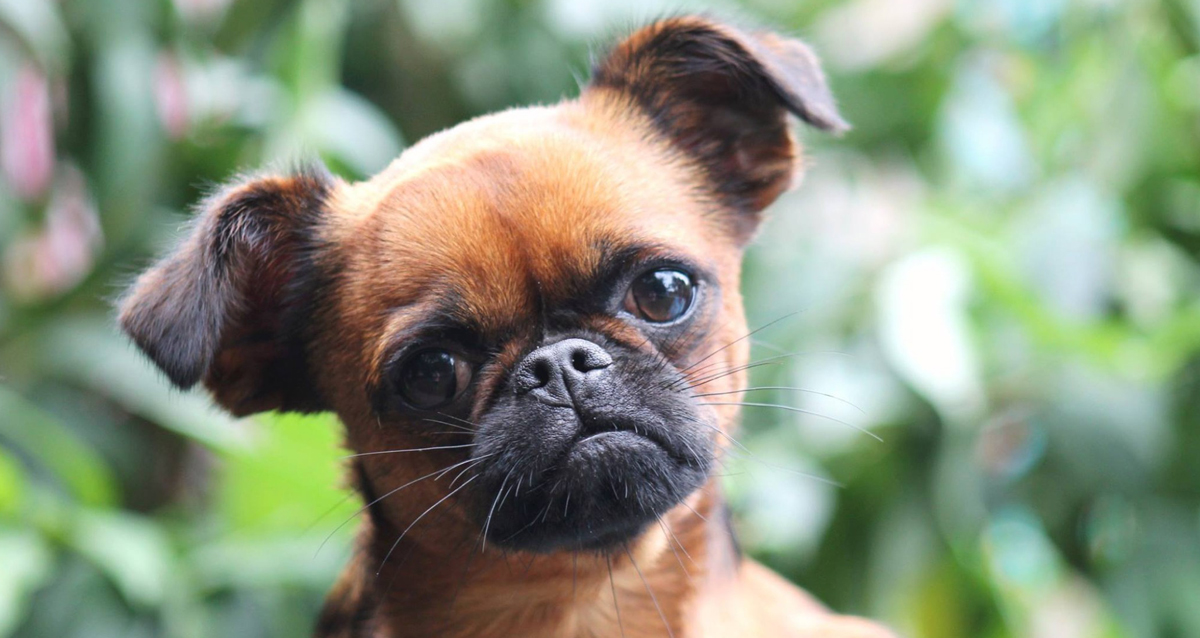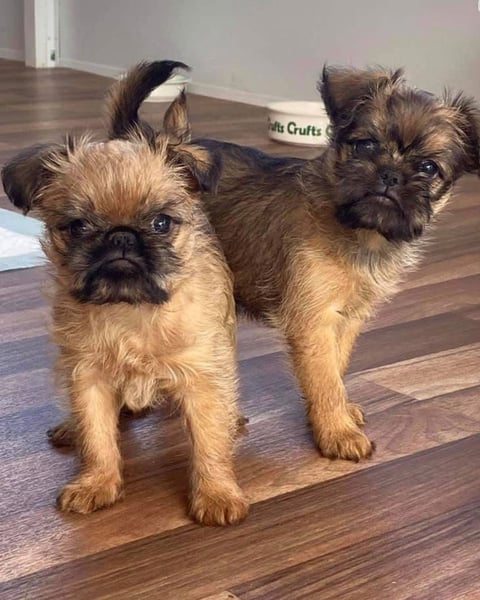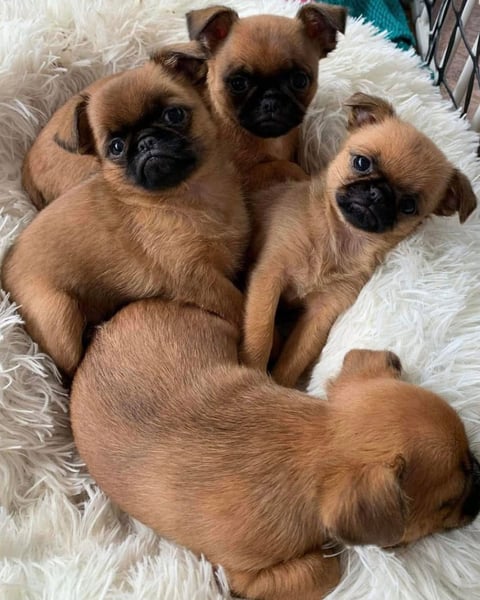Teacup Puppies: Health risks & the truth behind the trend
Every few years there seems to be a puppy fad or trend that gets hold, and the latest is the return of the 'teacup'. A growing number of ads for "Teacup Puppies" are being reported - maltipoos, poodles, and other variations - promising 'adorable, healthy, vaccinated puppies ready for their forever homes'. According to Michelle Parker Brien - President of the Country Griffon Bruxellois Club of NSW, there's also been a very real surge in ads for “teacup Griffons” which is raising alarm bells as the breed is becoming increasingly sought after and prone to exploitation by 'for profit' breeders. This spike in teacup puppy ads is deeply concerning and highlights the urgent need for clear, factual information for anyone considering one of these dogs.
Share this page:

What is a teacup puppy?
“Teacup” is a marketing term for dogs bred to be much smaller than a proper, healthy size - often under 2 kg (4.4 lbs) as adults. There is no official or scientific definition, and no responsible breeder or association recognises “teacup” as a legitimate category. The term is often used by puppy farmers or 'for profit' breeders to create a sense of rarity and justify higher prices.
How are teacup dogs bred?
Teacup puppies are often bred from the smallest (runt) puppies in a litter. Because not every litter has a runt, some breeders resort to inbreeding or other risky practices to consistently produce tiny dogs. This focus on size over health increases the risk of inherited and developmental health issues.
Breeds and designer breeds advertised as teacups
Miniature Dachshund (2–2.7 kg / 4.4–6 lbs)
Griffon Bruxellois (3.2-5.5kg / 7.1-12.1 lbs)
Maltese (1–2 kg / 2.2–4.4 lbs)
Chihuahua (1.4–2.7 kg / 3–6 lbs)
Toy Poodle (1.8–2.7 kg / 4–6 lbs)
Yorkshire Terrier (1.8–3.2 kg / 4–7 lbs)
Pomeranian (1.8–2.5 kg / 4–5.5 lbs)
Shih Tzu (2–2.3 kg / 4.5–5 lbs)
Papillon (1.5–2 kg / 3.3–4.4 lbs)
Bichon Frise (1.4–2.3 kg / 3–5 lbs)
Designer mixes: Maltipoo, Cavoodle, Yorkipoo, Pomchi, Mal-shi, Schnoodle, Pekeapoo, Puggle
Health risks and welfare concerns
Teacup dogs face serious health problems including:
- Hypoglycaemia (dangerously low blood sugar, requiring frequent feeding)
- Liver shunts (abnormal blood vessels affecting liver function)
- Hydrocephalus (fluid on the brain, leading to neurological problems)
- Collapsing trachea (breathing difficulties and cough)
- Dental disease (overcrowded and retained baby teeth)
- Heart disease (including degenerative valve conditions)
- Orthopaedic issues (fragile bones, luxating patella)
- Extreme fragility (high risk of injury from minor accidents)
- Difficulty with medication and anaesthesia (higher risks due to small size)
- Greater vulnerability to injuries, temperature changes, and stress.
The ethics of teacup breeding
No responsible breeder uses the term “teacup” or deliberately breeds for extreme smallness. Michelle Parker Brien explains:
“When people deliberately breed for extremes in anything, it just opens it up to health problems... A reputable breeder will never use the word ‘teacup’ or sell at an increased price as ‘rare’. It isn’t rare. Don’t be fooled or played for a sucker by these people. They only breed for profit with no concern about the long term prospects of the puppy."
A properly bred small dog should be within a healthy weight range for its breed. Very occasionally, a puppy may be smaller due to health issues - an ethical breeder will always disclose this and never charge a premium or market the dog as “rare.”
Red flags when buying a puppy
- Use of the term “teacup” in ads or conversations
- Non-refundable deposits before meeting the puppy or seeing health documentation
- No health testing or documentation for parents
- Claims of “rare” colours or sizes with high price tags
- Refusal to allow visits or answer questions
How to find responsible breeders and clubs
Perfect Pets connects you with fully verified Dogs Australia (ANKC) breeders who follow a strict code of ethics and care standards. Learn more about Perfect Pets breeder standards, and for breed specific advice breed clubs and associations can provide guidance and and information.
Teacup dogs may look cute, but their tiny size comes with significant health risks and ethical concerns. If you want a small companion, choose a dog that is an appropriate, healthy size, and always ensure you're dealing with a responsible breeder.
Posted for educational purposes. Please share to help others make informed, compassionate decisions about teacup dogs and ethical breeding.
Share on Facebook Share by Email



